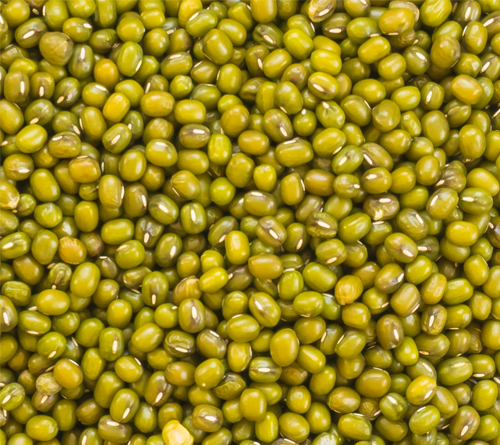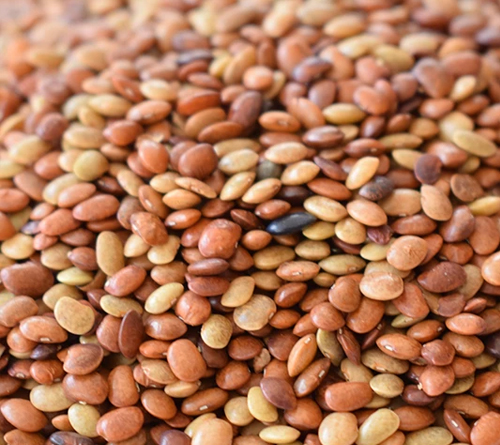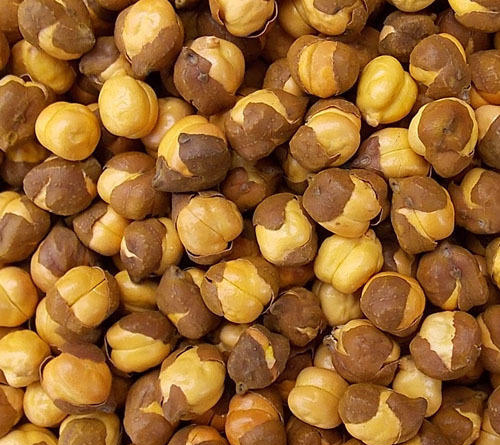PROTEIN POORAK contains the following nutritious pulses and legumes Horse gram (kulthi bean/ Madras gram/Hurali), Green gram (mung), and Bengal gram (channa). It's a balanced blend to obtain the best nutrients from each variety.
They provide fibre, protein, carbohydrate, B vitamins, iron, copper, magnesium, manganese, zinc, and phosphorous. They are naturally low in fat, are practically free of saturated fat, and because they are plant foods, they are cholesterol-free as well. They also have a low glycemic index, generally ranging between 10 and 40.
The legumes and pulses we have chosen for the blend are rich in essential amino acids, such as phenylalanine, leucine, isoleucine, valine, lysine, arginine, and more. Essential amino acids are those that your body is unable to produce on its own.

Since all lentils and pulses in the PROTEIN POORAK blend are sprouted, they contain fewer calories and more free amino acids and antioxidants than unsprouted ones and are much healthier. Sprouting also removes antinutrients, which can reduce the absorption of minerals like zinc, magnesium, and calcium.
Lentils, pulses, and beans contain many healthy antioxidants, including phenolic acids, flavonoids, caffeic acid, cinnamic acid, and more, which may reduce the risk of chronic disease. Antioxidants help neutralize potentially harmful molecules known as free radicals.
These legumes and pulses contain a high amount of soluble fibre such as pectin, as well as magnesium and potassium, that may aid in reducing blood pressure and help with digestive health. Soluble fibre can boost intestinal immune defenses and lower the risk of diseases. They also contain resistant starch, which works similar to soluble fibre, as it helps nourish the healthy gut bacteria.
The high fibre, protein, and antioxidant content may help lower blood sugar levels and help insulin work more effectively, thereby help in controlling diabetes. In fact, legumes and pulses may protect against heat stroke, help with digestion, promote weight loss, and lower "bad" LDL cholesterol, blood pressure, and blood sugar levels. They are healthy, delicious, and versatile.
Consumption of these pulses has been shown to lower the risk of developing type 2 diabetes and, for those who have diabetes, to improve both glycemic and lipid control. A diet rich in these pulses has shown significant decreases in total cholesterol and triglyceride levels, as well as reductions in systolic and diastolic blood pressure compared to the diet high in other grain-based foods. Some studies have also reinforced the positive effects of legumes on reductions in blood glucose levels.
Legumes are rich in potassium, magnesium, and fibre, all nutrients that have a positive impact on blood pressure management.



Millets (Finger Millet – Ragi, Foxtail Millet – Navane, Browntop Millet – Korle); Lentils and Pulses (Horse Gram – ¬Hurali, Green Gram – Mung, Bengal Gram – Channa); Super Foods (Quinoa, Chia Seed, Flax Seed); Amaranth (Rajgira Grains); Nuts (Almonds, Cashews, Walnuts, Pistachios); Spices (Fenugreek Seed, Caraway Seed, Cardamom, Nutmeg, Clove, Black Pepper, Cinnamon, Saffron); Dry Dates and Jaggery; Edible Guar Gum, and Edible Acacia Gum.